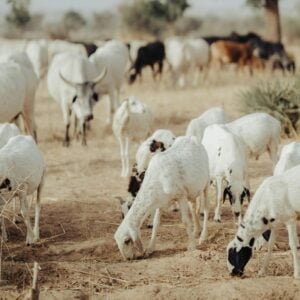The Food and Agriculture Organization of the United Nations (FAO) today announced a series of major initiatives to strengthen animal health and advance the sustainability of the livestock sector, following three days of global dialogue at its second Global Conference on Sustainable Livestock Transformation.
The conference, held at FAO headquarters in Rome, brought together policymakers, farmers, private sector leaders, industry associations, civil society, NGOs, researchers, and development partners from across the world. Participants shared experiences and showcased innovative solutions to transform livestock systems in ways that support climate goals, food security, and resilient livelihoods.
Through plenary discussions, expert panels, pitch sessions, and thematic forums, the event explored pressing issues such as climate change mitigation, low-emission livestock systems, animal health and welfare, sustainable feeding and breeding, food security, and technological innovation.
In his closing remarks, FAO Director-General QU Dongyu expressed gratitude to participants for their contributions and announced several new organizational commitments inspired by the conference’s outcomes. Among these are two new global hubs: the One Health Knowledge and Intelligence Hub and the Sustainable Livestock Transformation Innovation Hub. FAO will also launch the Global Challenge Programme for Transboundary Animal Diseases, designed as a bold new business model to protect animal health, support livestock production, and safeguard livelihoods worldwide.
A network of FAO Reference Centres for Animal Feed will be established, unlocking opportunities to strengthen the feed sector, particularly in developing countries. Looking further ahead, FAO will host the first-ever Global Conference on One Health in Agrifood Systems in 2026, highlighting how the One Health approach connects animal, human, plant, soil, and environmental health with food safety and nutrition.
The conference served as a platform for countries to share national goals and commitments, while farmers, private sector leaders, and consumer groups discussed practical solutions to challenges such as productivity, market access, and sustainable finance. Experts highlighted inclusive models, gender-responsive approaches, and youth leadership as essential components of transformation. Financial institutions and donor agencies explored pathways to scale up successful practices through targeted investment and blended finance.
“The conference has shown that we have all the tools in the toolbox to turn challenges into opportunities, and opportunities into real action,” Qu said. He emphasized that livestock transformation must become the norm rather than the exception, requiring countries and partners to scale up good practices, share innovations, and deliver on the commitments made.
The outcomes of this second Global Conference confirm that livestock systems—when guided by sound policies and practices—can deliver on FAO’s vision of the Four Betters: better production, better nutrition, a better environment, and a better life, leaving no one behind.







